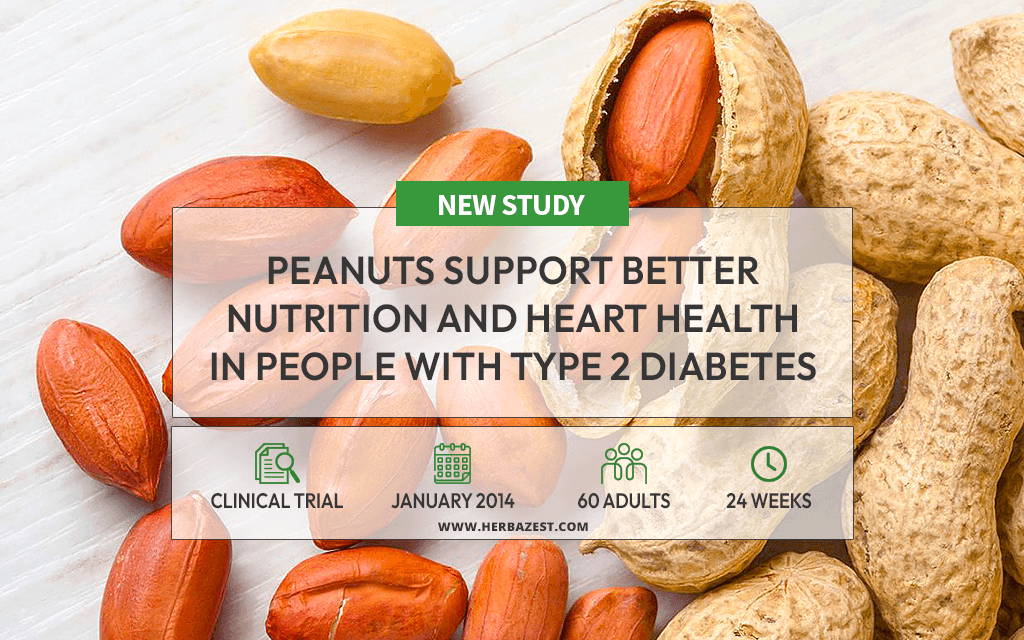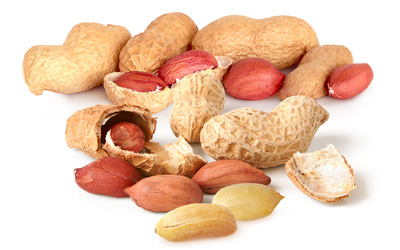For people living with type 2 diabetes, maintaining proper glycemic control and adequate nutrition through diet is a non-negotiable part of managing the disease. Although seemingly simple, dietary interventions tend to be the most challenging for many diabetics.
Several studies have shown benefits of consuming monounsaturated fats for glycemic and lipid control.1 Peanuts are one of the most prominent sources of those healthy fats, in addition to a wide range of other cardioprotective micronutrients. As such, their nutritional profile may be helpful in managing diabetes.
The aim of this clinical trial was to evaluate the effects adding peanut to a diabetic diet.
The Study
In this 24-week randomized, parallel clinical trial, 60 adults with type 2 diabetes were randomly assigned to two groups. It was led by the researchers from the Californian Loma Linda University.
The intervention group was instructed to consume an American Diabetes Association (ADA) meal plan, containing about 20% of energy from peanuts (46 grams daily). The control group, on the other hand, was given a peanut-free ADA meal plan.
The ADA meal plan consisted of 35% total fat (15% monounsaturated), 45% carbohydrates, and 20% protein. Peanuts were either consumed raw and salted; as peanut butter with added salt and oil; or a mix of both.
Participants' weight, body mass indexes (BMIs), and waist circumferences were recorded before, during, and after the study. Their lipid and blood glucose levels were also measured throughout the trial.
The Results
In the intervention group, researchers observed a higher polyunsaturated fat-to-saturated fat diet ratio.
Their intake of monosaturated and polyunsaturated fats as well as of other cardioprotective nutrients, including magnesium, niacin (vitamin B3), and alpha-tocopherol (vitamin E), was also higher relative to the control group.
In both groups, there was a mild reduction in weight, BMI, and waist circumference. Blood lipid levels and ratios were also improved in both groups.
What Does this Mean?
The results of this study demonstrate that alongside a diabetic-friendly diet, peanuts improve the levels of cardioprotective nutrients in adults with type 2 diabetes. They also promote anthropometric improvements, particularly in terms of weight, BMI, and waist circumference loss.
These nutritional and cardiometabolic improvements are crucial for the treatment of diabetes as well as the prevention of its complications.
Sources
- Nutrition Journal, A randomized controlled trial to evaluate the effect of incorporating peanuts into an American Diabetes Association meal plan on the nutrient profile of the total diet and cardiometabolic parameters of adults with type 2 diabetes, 2014
Footnotes:
- The American Journal of Clinical Nutrition. (1998). High-monounsaturated-fat diets for patients with diabetes mellitus: a meta-analysis. Retrieved January 5, 2021 from https://academic.oup.com/ajcn/article/67/3/577S/4666084?login=true





